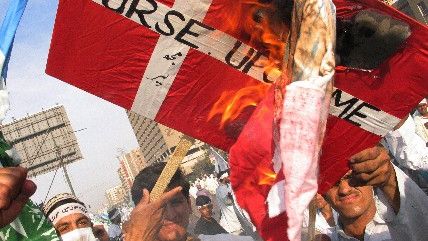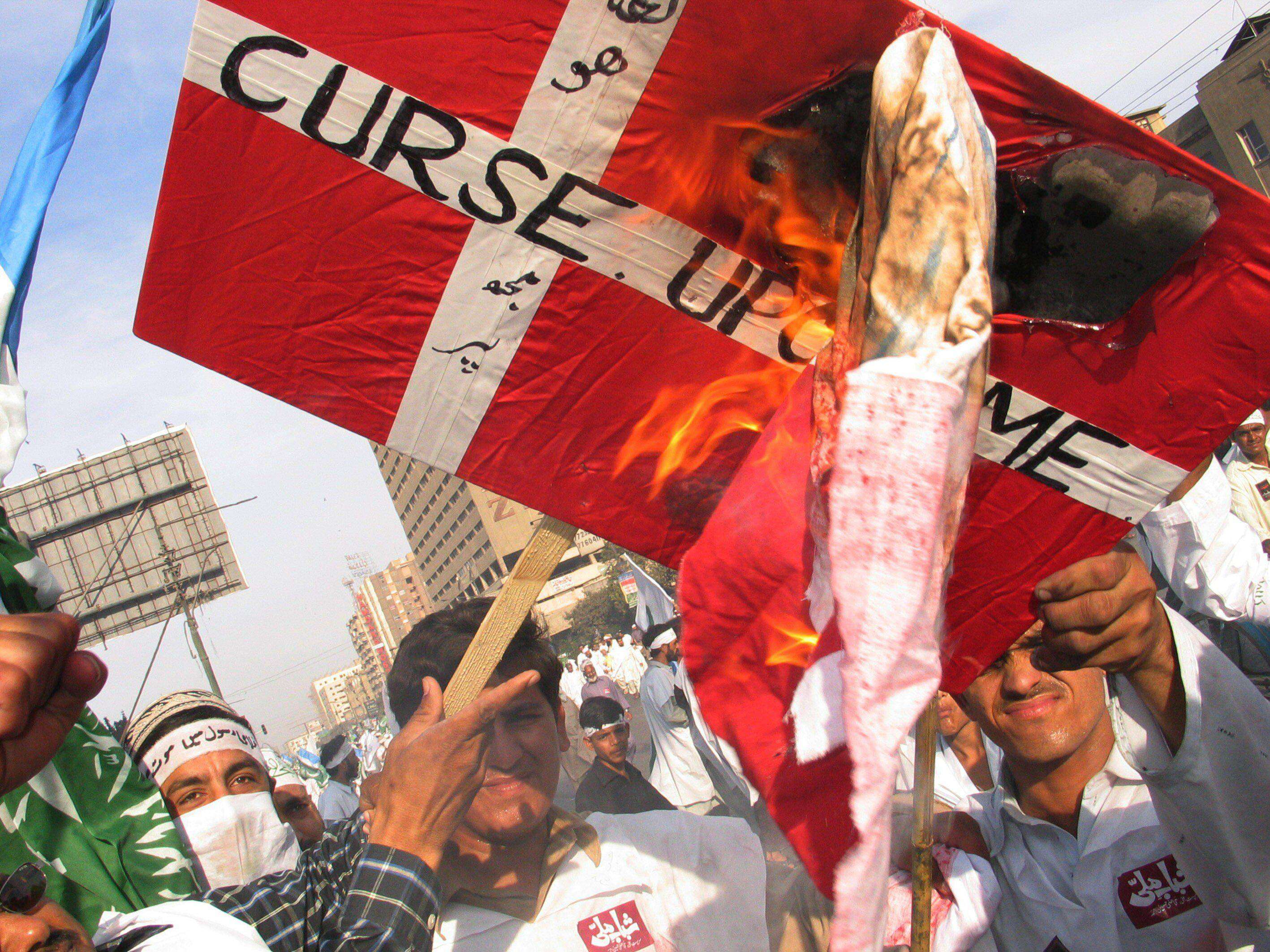Danish Man Who Burned a Koran on Facebook Will Be Prosecuted For Blasphemy
Denmark's first blasphemy prosecution since 1971.


A man in Denmark will be prosecuted under the country's blasphemy laws for burning a Koran and posting video of the book's immolation to Facebook in 2015.
The Associated Press reports that the man (whose name was not released) will be the first Dane since 1971 to be charged under a law forbidding "publicly mocking a religious community's religious doctrines or worship," and only the fifth person ever to be prosecuted for blasphemy in Denmark, according to The Independent. The man faces up to four months in prison but, if convicted, will more likely face a fine.
Prosecutors had considered charging the publisher and editors of Jyllands-Posten—which in 2006 published cartoons depicting the Muslim prophet Mohammad that were met with violent reactions in various countries—but ultimately declined to do so.
In recent years, Denmark had considered repealing its blasphemy ban, but in 2015 decided to reaffirm it during a session of the United Nations (UN) Human Rights Council. A poll conducted in 2012 found 66 percent of Danish citizens supported the almost-never-used prohibition on blasphemy.
Despite the rarity of blasphemy charges in Denmark, prosecutions against "hate speech" are quite common. Writing for Columbia University's Global Freedom of Expression platform, Jacob Mchangama argues that "scope creep" among such prosecutions appears to be happening in Denmark, and that Denmark's stance at the UN has international implications—especially among certain countries which punish blasphemy with heavy prison sentences, or even death:
The conflation of blasphemy and hate speech goes to the heart of the debate at the UN between (primarily) democracies on the one hand and Muslim states of the Organization of Islamic Cooperation on the other. In 2011 the annual and highly divisive OIC resolutions on "Defamation of Religion" (an attempt to create a global blasphemy ban under international human rights law) were ended by the passing of Resolution 16/18 at the Human Rights Council. The resolution is essentially a compromise brokered by the United States and the OIC and protects individuals, rather than religions, from religious discrimination and intolerance, as well as promoting "open, constructive and respectful debate." Yet, OIC member states have since attempted to interpret the obligation to prohibit certain forms of hate speech in Article 20 (2) of the ICCPR, so broad as to include criticism and mockery of religion.
Mchangama adds:
Undoubtedly these states will have been encouraged by the actions of the Danish police and the District Court of Elsinore. However, the fates Asia Bibi on death row for blasphemy in Pakistan, Raif Badawi serving 10 years for insulting Islam in Saudia Arabia, and Ayatollah Kazemeini Boroujerdi serving a lengthy prison sentence in Iran for "waging war against God," show that criticism of religion is an essential human right for all, including devout religious believers of all faiths.
Watch Reason TV's interview with former Jyllends-Posten editor Flemming Rose below, where Rose talks with Nick Gillespie about "the Worldwide Suppression of Free Speech":


Show Comments (57)